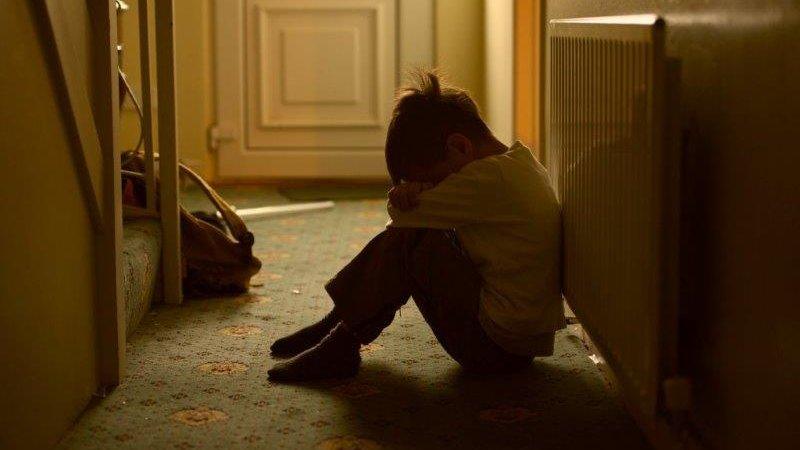Historical institutional abuse: Stormont memorial to victims to go ahead
- Published
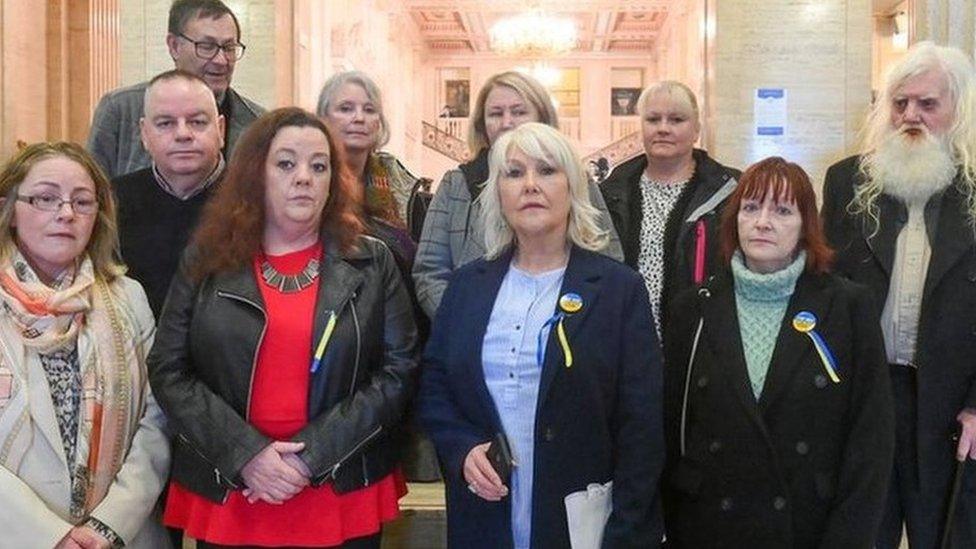
Victims and survivors gathered at Stormont in 2022 to receive a public apology from politicians
A permanent memorial for victims of historical institutional abuse (HIA) is on track to be installed at Stormont this year, BBC News NI has learned.
This week marks seven years since an inquiry recommended an apology, a memorial and compensation to survivors.
There is now a compensation scheme and a public apology was delivered in 2022.
Plans on a memorial bench are now understood to be advanced, but victims and survivors have mixed opinions on it.
Northern Ireland has been without a power-sharing executive for nearly two years due to DUP opposition over post-Brexit trade rules.
The lack of a functioning devolved government and legislative assembly has left a number of decisions stalled, unable to be taken without executive ministers.
But the Executive Office has confirmed that Stormont officials have now agreed to progress a memorial bench in Parliament Buildings.
"In the absence of ministers, the Executive Office wrote to the Assembly Speaker before Christmas seeking the Assembly Commission's permission to progress a memorial bench in Parliament Buildings," it told BBC News NI.
"We are pleased that the Assembly Commission have granted their approval."
'Phased approach'
Officials will work with victims and survivors on the wording of the plaque and an unveiling event.
It said the bench will be part of a wider "phased approach" to accommodate a range of views from victims and survivors.
There will also be two further phases of implementation.
The Executive Office said this will include the installation of localised memorials across Northern Ireland, designed by an artist selected by an Arts Council-led competition.
The final phase will consider a wider memorial programme, which could include events, exhibitions, and educational pieces.

What did the HIA inquiry recommend?
Compensation to survivors of abuse, including in homes/institutions not covered by the HIA Inquiry, and relatives of deceased
Permanent memorial erected at Stormont
Public apology to survivors
Establishment of a commissioner for survivors of institutional abuse
Specialist care and assistance tailored to needs of victims

Margaret McGuckin, from the campaign group Savia (Survivors & Victims of Institutional Abuse), has been supportive of the plans for a bench at Stormont.
"This bench will be seen, we hope, by many people passing through Parliament Buildings - including tourists - who will ask what is this for.
"It is in remembrance of young boys and girls who suffered in those institutions, especially those who passed away," she added.
"It's important the bench is placed at the seat of government, they were at fault too, not only the churches."
Some victims have previously indicated they did not want to see a bench installed and would prefer money to be used for bursaries or "living memorials".
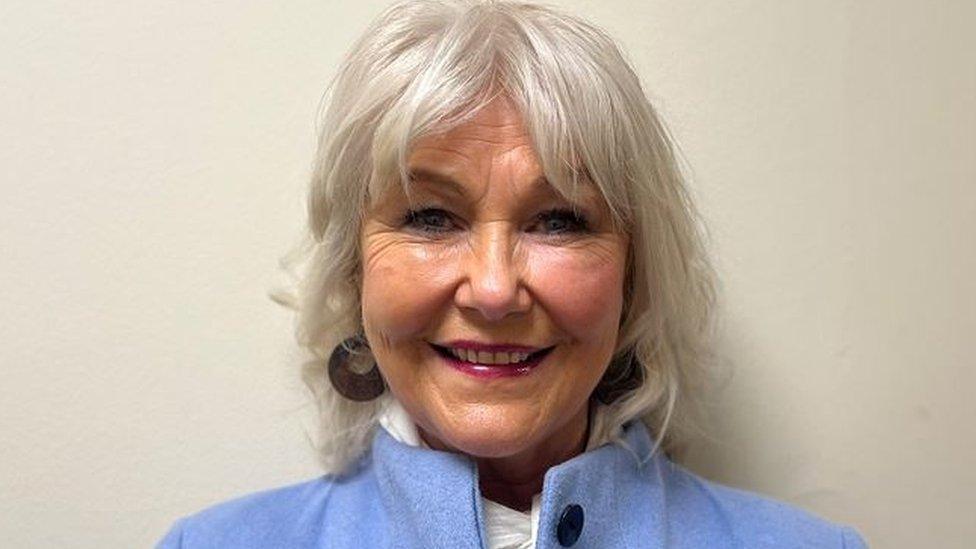
Campaigner Margaret McGuckin said it was important the memorial was placed at the seat of government
Gerry McCann, from the Rosetta Trust, said its members felt that a memorial bench was a "huge missed opportunity", which had left victims and survivors feeling hurt and insulted.
He said the organisation had put forward ideas such as a stained glass window, a dedicated public building to the story of victims and a bursary, but those were not taken on "for whatever reason".
Mr McCann added that the proposal "seems to be all about the optics" and is "a huge let down".
"This is hollow and you have to ask is a bench the best they can come up with. How does a bench tell the pain of victims and survivors whose childhoods were lost forever?"
'A living memorial'
Jon McCourt, from Survivors North West, said he wanted to see a "roving exhibition".
"There's a story to be told in this because there's learning from it and I think an exhibition would go some way to understanding who we are and what this was all about," he said.
"I think young people could benefit from studying and learning about it - a living memorial could go right through the years."
The Assembly Commission said both it and the Speaker Alex Maskey were "committed to playing their part" in ensuring that the victims and survivors of historical institutional abuse are remembered.
"Assembly Commission and Executive Office officials will be liaising over the next few weeks on the details of the work required to see the memorial bench delivered," it added.
The HIA Inquiry studied allegations of abuse in 22 homes and other residential institutions between 1922 to 1995.
These were facilities run by the state, local authorities, the Catholic Church, the Church of Ireland and the children's charity Barnardo's.
The public inquiry, led by the late Sir Anthony Hart, found that there was widespread abuse and mistreatment of young residents across the institutions.
Related topics
- Published11 March 2022
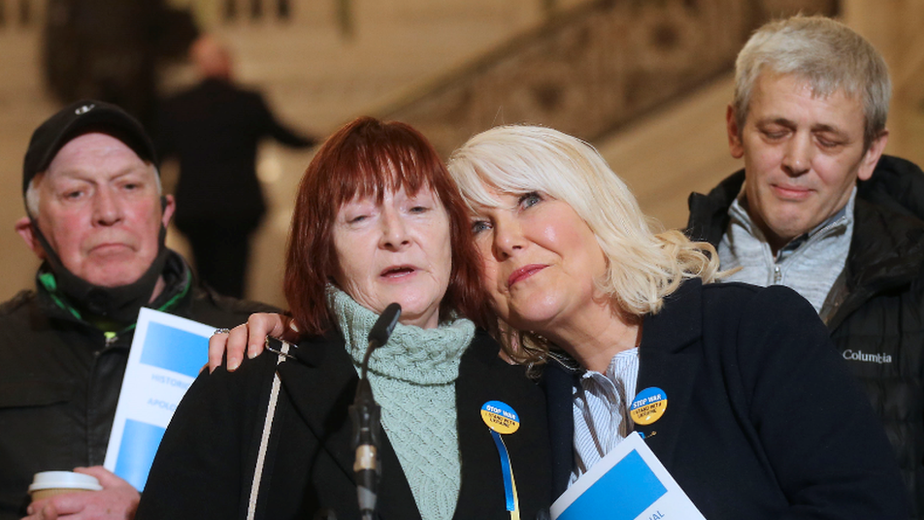
- Published7 November 2022
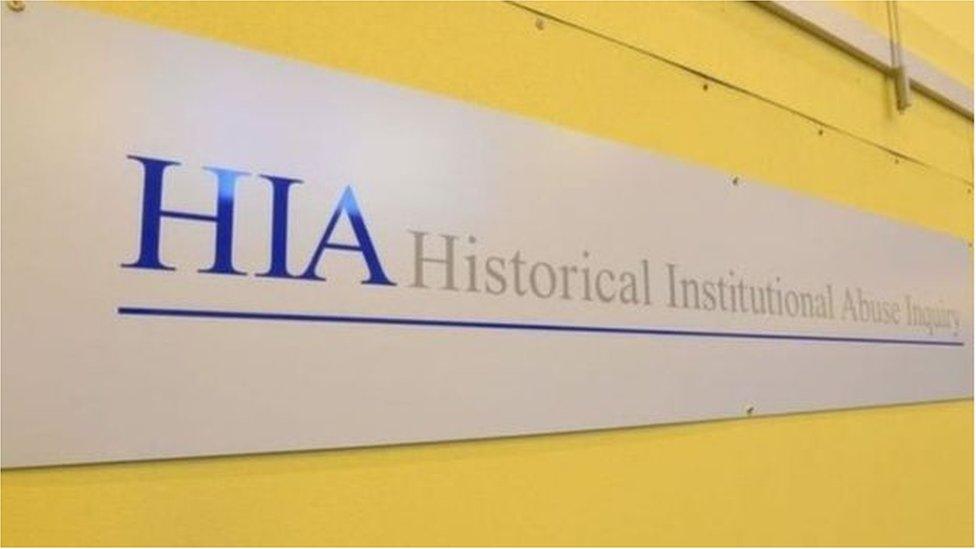
- Published20 January 2017
